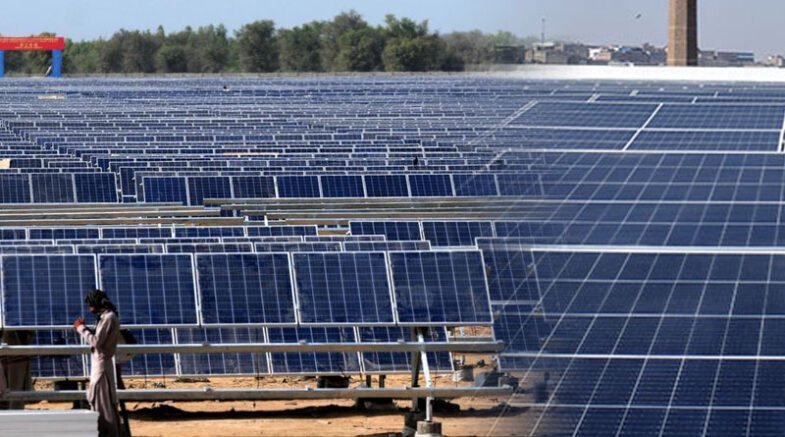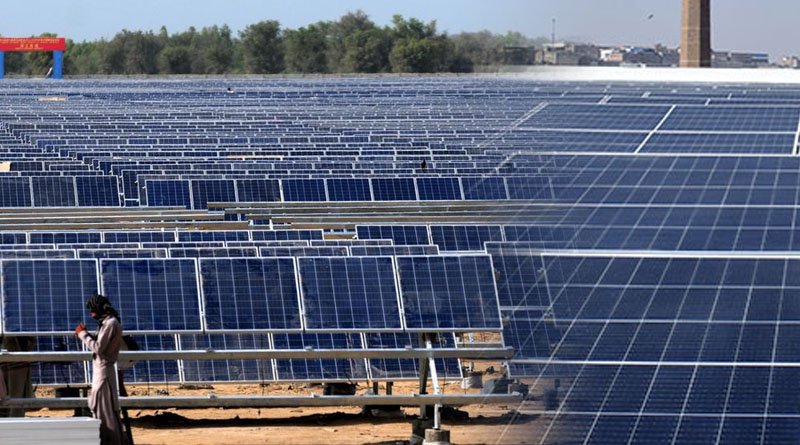The project’s goal is to gradually wean the country off of costly fossil fuels for energy generation. The 600-MW solar project will generate green energy instead of thermal power.

In a public hearing held on Monday by the National Electric Power Regulatory Authority, the provincial government of KP opposed the federal government’s planned solar project in Muzaffargarh (NEPRA).
The project’s goal is to gradually wean the country off of costly fossil fuels for energy generation. The 600-MW solar project will generate green energy instead of thermal power.
During the NEPRA hearing, KP government representatives stated that the federal government did not consult them before launching the project. This, they claim, violates the ARE policy approved in 2019.
The opposition came despite the Ministry of Law and Justice’s legal opinion in favour of the project, which was based on the Alternative and Renewable Energy (ARE) Policy.
Because the provincial government was not consulted, the KP government has declared that the federal government cannot begin the solar energy project in Muzaffargarh (Punjab) without first obtaining approval from the Council of Common Interest (CCI).
The CCI is a constitutionally mandated body of the Pakistani government. The president appoints it based on the prime minister’s recommendations. The council resolves disputes over power-sharing between the federal and provincial governments.
On the contrary, federal government representatives believe that the Ministry of Law and Justice has also provided a legal opinion that is consistent with the overall renewable energy strategy, making opposition unnecessary.
According to documents obtained by Profit, the law division has legally supported the proposed solar projects. According to federal government representatives, the solar project will begin under the auspices of the Alternative Energy Development Board (AEDB).
The AEDB had previously approved this in a meeting attended by the chief secretary of KP as well as stakeholders from other provinces.
It is important to note that the proposed initiative for the substitution of expensive imported fossil fuel with solar energy is in fact in line with the ARE Policy, 2019, that was approved by the PTI government at the time.
The 2019 Policy for Alternative and Renewable Energy lays out a plan for further realising Pakistan’s full potential for renewable energy while encouraging competitive pricing.
The policy establishes a comprehensive framework with a broader scope that encourages businesses and residential consumers to use renewable resources and energy-efficient technology.
The policy initiatives are expected to put in place the infrastructure required to ensure that renewable energy is completely mainstreamed and integrated into the country’s energy planning, economic development, and social development processes, ultimately benefiting the people of Pakistan.
Similarly, the AEDB is authorised by law to “develop national strategies, policies, and plans for the utilisation of alternative and renewable energy resources in order to achieve the targets approved by the federal government in consultation with the board.”
Previously, the AEDB submitted the necessary documents to Nepra for approval to begin the bidding process for the solar energy project. After reviewing the documents, the authority held a public hearing on Monday to make a decision in this regard.
It is worth noting that, in order to promote sustainable green energy and reduce the use of imported fossil fuels, the federal cabinet approved guidelines for the substitution of expensive imported fossil fuels for energy generation with solar energy on October 18, 2022.
The first 600-MW solar energy project under the initiative to promote renewable energy will be developed in the Kot Addu/Muzaffargarh region of Punjab.
The project site was chosen after careful consideration and research into resource availability, existing grid infrastructure, water availability, and proximity to the load centre in order to maximise project efficiency and minimise costs.
The Central Power Purchasing Agency (CPPA) will buy all generated power on a 25-year BOOT (Build, Own, Operate, and Transfer) basis, while the government of Pakistan (GoP) will waive duties and taxes on the import of solar equipment, including land for the project, and power offtake through the NTDC.
